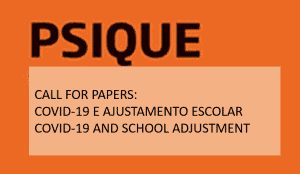This project seeks to develop a broad investigation with the aim of verifying whether the application of mindfulness techniques in a school context in a population of children and adolescents can positively influence various skills in them, in terms of behavior and academic performance in the classroom but also in , sustained attention, concentration, anxiety, academic commitment, emotional skills and self-regulation (Johnson, Diamond & Goolkasian, 2010).
The application of mindfulness techniques developed for this purpose is based on the model of Mindfulness-based cognitive therapy for children (MBCT-C). Children and young people subjected to MBCT-C model techniques show a reduction in behavioral attention problems and anxiety symptoms (Semple, Lee, Rosa, & Miller, 2010)
This project aims to develop an intervention-action approach in schools. A psychologist will train the teachers, with a frequency of 3 sessions per year (or 5 if the project starts in October). In these, teachers will learn mindfulness techniques to apply daily in the classroom to students. The psychologist will also be with a group once a week in sessions of 30 to 40 minutes. These sessions will reinforce the techniques applied daily by the teachers.
Students will be assessed in a pre-intervention context (before starting mindfulness sessions with teachers and psychologists) in January or February. And finally, another evaluation will be carried out in a post-intervention context at the end of the school year, more specifically in June. This assessment will include the application of psychological assessment instruments to measure behavioral and cognitive variables.



